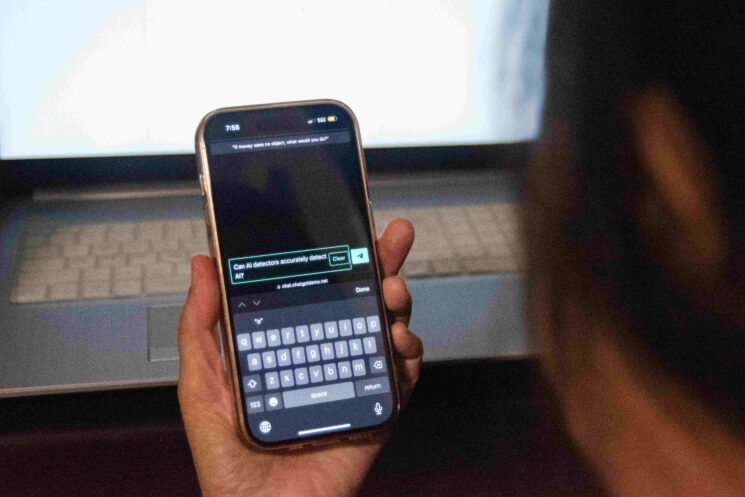
By Rebecca Do
So, Generative AI is destroying academic integrity. And this is not a new development. With the rise of ChatGPT and the use of it among students, we are now not asking writers the process of drafting, writing and creating their works, but what they put into the textbox to garner that result.
As a result, teachers have been cracking down on this robot epidemic. Honor code conversations and debates on what warrants a violation and what counts as cheating have been the topic of discussion for most of my peers for quite a while. “My teacher had such a scary honor code presentation,” they’d say. But the reason for that is because of generative A.I.
So what happens when they put fleshed-out essays into an A.I. detector? Naturally, it’d screw over innocent students.
One of our BBN staff members took an online English course at Golden West College through dual enrollment. Breezing through the class with an A, she was baffled when she found out her grade was an F.
Ever the scholar, she emailed her professor about her grades. The professor, who shall remain nameless, responded with a quick “check Canvas” and that is when it all hit the fan.
She had been accused of using A.I., even when she knew she didn’t. So how was she supposed to go about this?
Unfortunately, her academic integrity case is a story for another day, but from there, we can understand why the uptick in generative A.I. can be so harmful. Nobody wants to be discredited for work they wrote themselves; nobody wants to be punished for something that they were assigned.
“A free online A.I., detector and my entire academic career for the past three years is down the drain,” she said.
Another thing that A.I. is doing is having English teachers update their honor code policies; We have come a long way from “keep your eyes to your own paper” to “don’t use artificial intelligence.” It’s safe to say that the use of generative AI has led to the downfall of thought; it’s like we’re not even people anymore when we’re putting these prompts into these websites— we’ve become one with the machine and we no longer have autonomy or the ability to think for ourselves.
However, the uptick in artificial intelligence programs being used for schools has rapidly flipped the classroom (and not in the “homework at school, learning at home” way.) From honor code discussions to classroom talks about why it’s unethical to use it, it’s like we can’t escape.
And the next thing you know, everything is A.I.! School is A.I., your experiences are A.I., your essays are A.I. and your math homework is A.I.! Equations can be solved by A.I., your college essay can be written through A.I.! Why is everything A.I.?
We’ve become so accustomed to not only people using such programs but also getting bombarded with horror stories of AI accusations, that we are terrified of that red bar on “Turn It In—” even if it doesn’t really detect plagiarism or generative AI.
So, yes, the advancement of artificial intelligence is taking over our schools— not just on the teacher’s end.
Imagine how frustrating it would be for you to churn out the most personal and emotional essay only for your teacher to pull you aside and tell you, “We need to talk.”
Imagine how angry you would be if something you worked so hard on got discredited by a third-party website’s “suspicion.”
Humans are so incredibly complex; we remember things, we quote text and all of our personal items and experiences can’t be replicated by code. A machine cannot think like a human—a machine cannot think, period. We need to remember this the next time we celebrate a new ChatGPT update or technological development.
We can’t stop it, no matter how hard we try. For as long as the Earth will orbit the sun, our world will change and there truly is not anything we can do.
I leave students with this though: your contribution to your class, through your work and your words, is so incredibly valuable. And teachers, try to have a little faith in your students.





